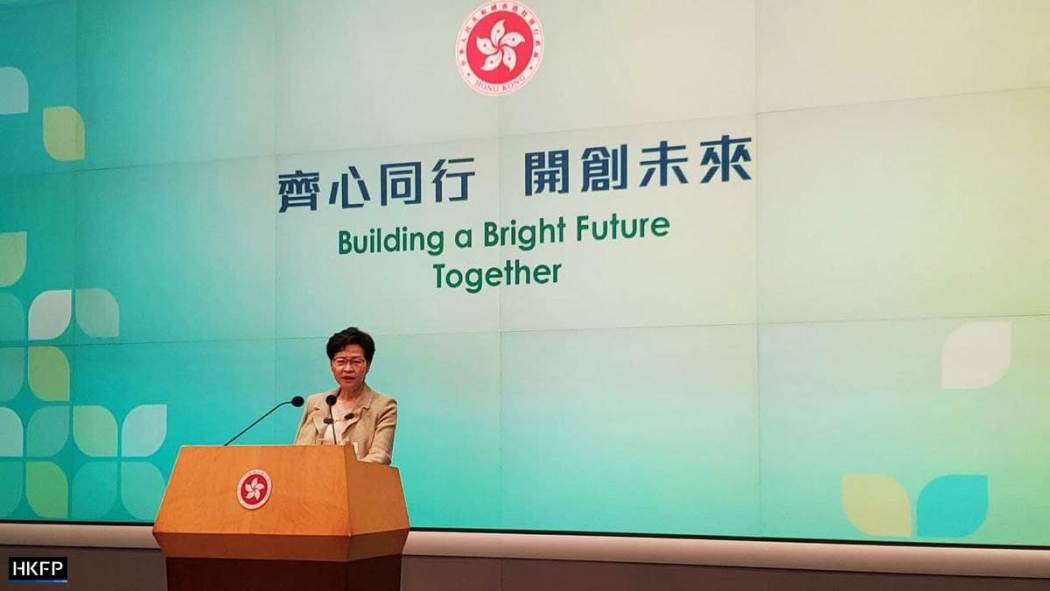Chief Executive Carrie Lam has dismissed concerns about organisations working freely in Hong Kong, responding to rights NGO Amnesty International’s decision to close all offices in the city citing the Beijing-imposed national security law.

“Under the Basic Law…the freedom of association, the freedom of assembly, the freedom of speech so on, are being guaranteed, so no organisations should be worried about their legitimate operations in Hong Kong, but it has to be done in accordance with the law,” said Lam on Tuesday in response to HKFP’s question.
Anjhula Mya Singh Bais, chair of Amnesty’s board, said in a press release on Monday that the national security law had made it “effectively impossible for human rights organisations in Hong Kong to work freely and without fear of serious reprisals from the government.”
The chief executive said that she would not comment on Amnesty’s decision. “Different associations and various individuals have explained or justified their actions on the basis of the national security law, but there is no way that one could prove that this is exactly the reason for [them] taking such a decision,” said Lam.

The NGO became the latest international organisation to leave the city following the enactment of the sweeping legislation in June last year. According to The New York Times, US NGO Human Rights Watch also left the city after its leadership was sanctioned by China.
Over 50 Hong Kong civil society groups also disbanded this year following the enactment of the national security law, including protest coalition Civil Human Rights Front and the organiser of the annual Tiananmen Massacre vigil, the Hong Kong Alliance in Support of Patriotic Democratic Movements of China.

The legislation criminalises subversion, secession, collusion with foreign forces and terrorist acts, which are broadly defined to include disruption to transport and other infrastructure. The move has given police sweeping new powers, alarming democrats, civil society groups and trade partners, as such laws have been used broadly to silence and punish dissidents in China.
‘Laudable objective’
Lam said on Tuesday that the legislation’s “primary objective” was “not just to arrest people and punish people, it also has the very laudable objective to prevent and suppress.”
“So, if there are individual organisations that have been using Hong Kong to spread news or to engage in activities that they are worried – because these activities are sort of undermining the national security of Hong Kong – then, of course, they would need to be worried,” said Lam.
The chief executive also said that a “record-breaking” number of overseas and mainland companies, and “some important legal organisations at the regional or international level” had set up offices in Hong Kong, showing that “the national security law has not prevented or “horrified” people from doing their legitimate business in Hong Kong.”
Support HKFP | Policies & Ethics | Error/typo? | Contact Us | Newsletter | Transparency & Annual Report | Apps
Help safeguard press freedom & keep HKFP free for all readers by supporting our team
























